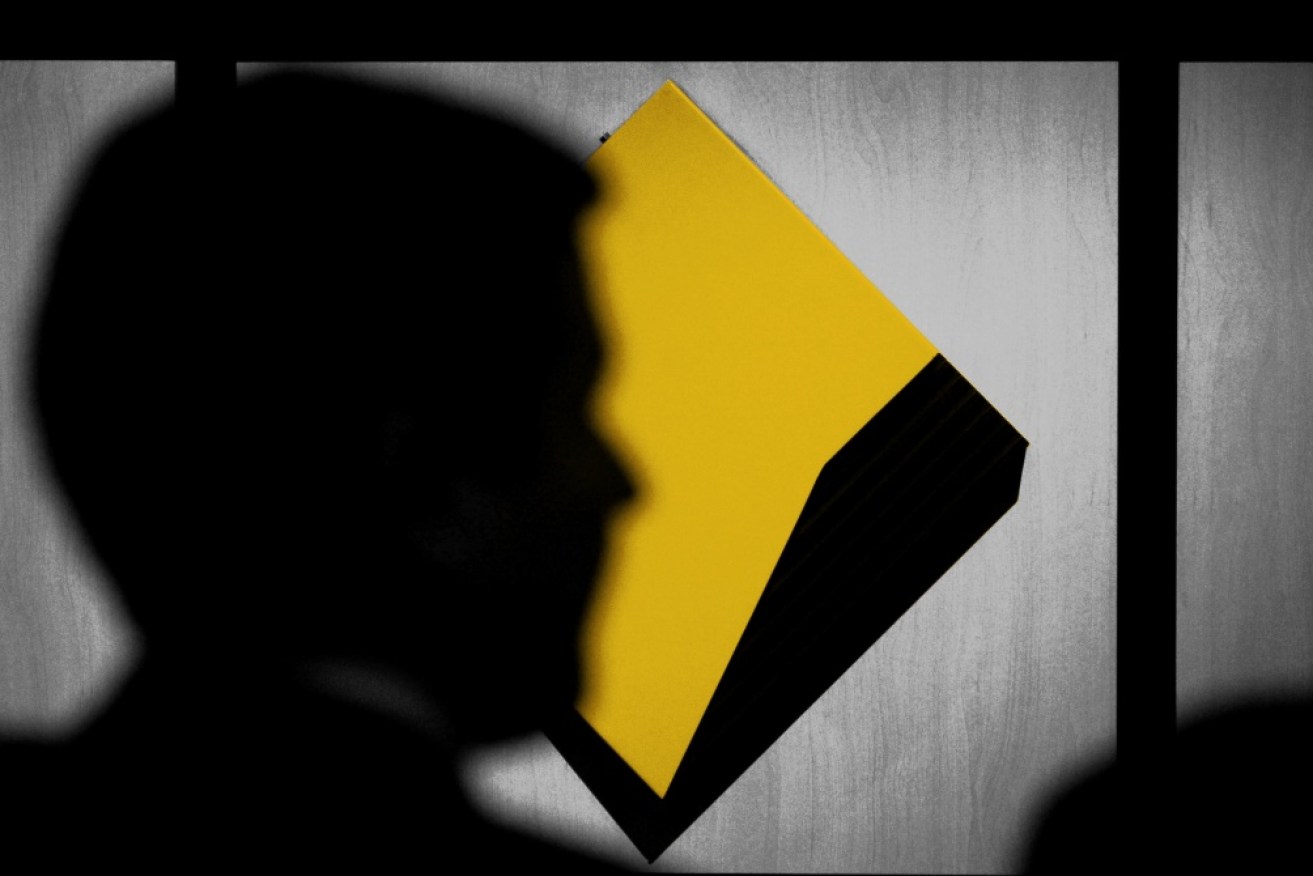Commonwealth Bank board scrambles to escape scandal

The historic case has claimed a CEO, triggered a royal commission, and threatens huge fines. Photo: AAP
The Commonwealth Bank board of directors has taken unprecedented action to limit the fallout of a money laundering scandal, as shareholders demand accountability from the very top of the organisation.
The board announced on Tuesday it would not only cut the 2016-17 bonuses of senior executives, as many had urged, but that it would also slash its own directorship fees for 2017-18.
On Wednesday morning the group announced a higher-than-expected, full-year after-tax profit of $9.93 billion, a 7.6 per cent rise.
CBA chair Catherine Livingstone, in the role less than a year, put her name to the official announcement of the bonus cuts to the stock exchange. She reassured the market that the board was cognisant of the “risk and reputation matters” posed by the case.
It marked a shift in tactic. Until Tuesday the bank’s market statements had been anonymous. And they had focussed on apportioning most of the blame to a software glitch – a defence that, whatever its legal merits, appeared to only heighten the reputation risks.
Analysts at Morgan Stanley say the bank could be fined up to $2.5 billion if it is held liable for its more than 53,000 alleged breaches of anti-money laundering laws – well under the legal maximum of nearly $1 trillion, but still a substantial blow.
Kevin Davis, research director at the Australian Centre for Financial Studies, said the board was right to be “rather concerned”, as “ultimate responsibility” rests with them.
“There have clearly been a lot of issues at the Commonwealth Bank, which all compound in terms of raising questions about the overall structure of governance and culture within the organisation,” he told The New Daily.
“If you go back to the NAB foreign exchange scandal, there was wholesale turnover of the board at that time.
“The board should look at itself and question, ‘to what extend do we have to bear some of the responsibility?'”
The scandal has also heightened the political pressure on the board. Labor has renewed its calls for a royal commission and Senator Nick Xenophon is pushing for new criminal penalties for bank directors and executives.
Treasurer Scott Morrison informed Parliament on Tuesday that he had warned the chair, Ms Livingstone, that “all options” for taking action against the bank remained open. He did not clarify if this meant the government might support a royal commission.
Judith Fox, CEO of the Australian Shareholders Association, said the board’s decision to slash pay was “something”, but that it was an open question if it went “far enough”.
“The fact the board has taken a haircut, that’s a very rare thing and a very good thing,” she told The New Daily.
“It signifies that the board has understood that there really does have to be accountability for this.
“Boards are the agents of shareholders, so shareholders need to see that the board is holding people accountable, including themselves.”
Ms Fox said CBA boards in the past had not taken enough responsibility for a string of scandals.
“The fact they’ve got a new independent chairman in Catherine Livingstone, I think that’s showing some welcome signs of board engagement on these issues in a different fashion from the past.
“There’s been a series of issues that have occurred and we’ve never seen any senior executive suffer. No one’s been dismissed. Before this, no one’s been financially penalised.”
Jeff Morris, a whistleblower who exposed a financial planning scandal at CBA, said if the allegations were proven, the board “should examine its own position”.
“It has sat there complacently through scandal after scandal with fairly superficial assurances that all is well,” he told The New Daily.
“Obviously there’s something wrong with the management team, and I’d say that’s influenced by their bonus schemes and their sales culture, but at the end of the day it’s the board that’s ultimately responsible for everything that goes on at that bank.
“The board are responsible for what the management team have done. The board has elected the CEO. And so the focus should really be brought back to the board.”








